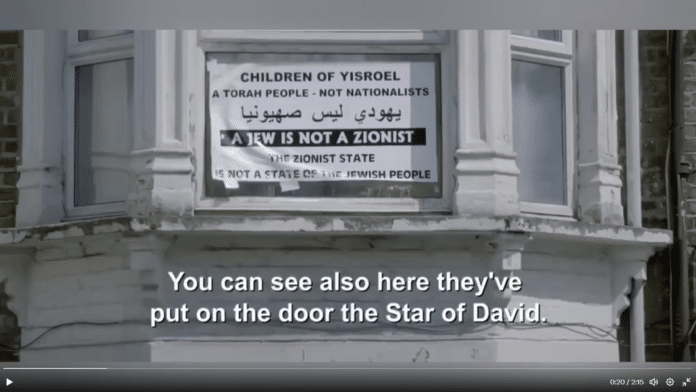The context:
The Israeli-Palestinian conflict is a long-standing dispute rooted in competing national aspirations and territorial claims in the region of historic Palestine. Both Israelis and Palestinians assert their rights to self-determination and control over the land. The conflict dates back to the late 19th century when Zionist Jews began migrating to Palestine to establish a homeland, leading to tensions with the Arab population.
In 1947, the United Nations proposed a partition plan that would have created separate Jewish and Arab states in Palestine. While the Jewish leadership accepted the plan, the Arab nations rejected it, leading to the 1948 Arab-Israeli war. As a result, the State of Israel was established, and neighboring Arab countries occupied parts of the remaining Palestinian territories.
Since then, the conflict has been marked by multiple wars, uprisings, and negotiations. The core issues revolve around borders, settlements, Jerusalem, refugees, and security. Israel has built settlements in the occupied territories, which the international community views as illegal under international law and a major obstacle to peace.
Efforts to resolve the conflict have included peace agreements, such as the 1979 Egypt-Israel Peace Treaty and the 1993 Oslo Accords, which aimed to establish a framework for a negotiated settlement. However, these agreements have faced significant challenges, including disagreements over land, security, and the status of Jerusalem.
Violence has frequently erupted, with both Israelis and Palestinians experiencing loss of life and suffering. Palestinian armed groups, such as Hamas, have launched rockets into Israel, while Israel has conducted military operations in response. The Israeli military has faced criticism for its use of force, which has resulted in civilian casualties and damage to infrastructure in Gaza and the West Bank.
International efforts to broker peace, including the involvement of the United States, the United Nations, and regional powers, have had limited success. The international consensus supports a two-state solution, with Israel and Palestine living side by side in peace and security. However, achieving this goal has been elusive due to the complexities of the conflict, the absence of trust between the parties, and the presence of hardline factions on both sides, including outside the region.
Public opinion on the conflict varies widely, with strong support for Israel among some Western countries and significant sympathy for the Palestinian cause in other regions. The conflict has also attracted attention and involvement from various non-state actors and global movements advocating for human rights and justice.
In recent years, there have been sporadic waves of violence, including clashes in Jerusalem and military confrontations between Israel and armed groups in Gaza. These events have reignited international calls for a renewed focus on resolving the conflict and addressing the root causes of the ongoing tensions.
Overall, the Israeli-Palestinian conflict is a complex and protracted dispute characterized by competing national aspirations, territorial claims, and a history of violence. Achieving a peaceful resolution remains a daunting challenge, requiring sustained dialogue, compromise, and international support to address the underlying issues and build a foundation for lasting peace in the region.
Who are Zionist Jews?
Zionist Jews are individuals who support the establishment and preservation of a Jewish homeland in the region historically known as Palestine, which includes the modern-day State of Israel. Zionism emerged as a political movement in the late 19th century and gained momentum as a response to widespread anti-Semitism and the desire for Jewish self-determination. Zionist Jews advocate for the rights and security of Jews worldwide and believe in the importance of a Jewish state as a homeland for the Jewish people. It’s important to note that not all Jews are Zionists, and there is a range of opinions within the Jewish community regarding Zionism and its various interpretations.
Who are Torah Jews?
Torah Judaism refers to the religious and cultural practices based on the principles and teachings of the Torah, which is the foundational text of Judaism. It encompasses the beliefs, rituals, and values observed by Orthodox Jews who adhere to the traditional interpretation of Jewish law as prescribed in the Torah and its associated commentaries. Torah Judaism places a strong emphasis on the study and observance of the commandments (mitzvot) and the pursuit of spiritual growth through adherence to Jewish law and ethical teachings. It encompasses various aspects of Jewish life, including prayer, observance of the Sabbath, dietary laws (kashrut), family and community life, and the study of Jewish texts.
Israeli state goes against Judaism
It’s important to note that the relationship between Torah Jews and Zionists is complex and multifaceted. While there may be differences and disagreements, there are also instances of collaboration and shared goals within the Jewish community. It is essential to avoid generalisations and recognize the diversity of perspectives among individuals and groups.
However, many Torah Jews oppose political Zionism. Their opposition stems from religious and ideological reasons. They believe that the establishment of a Jewish state should only occur with the arrival of the Messiah, as it is seen as a religiously mandated event. Some also object to the Zionist movement’s secular nature and its impact on religious life and values.
Here they explain why Jews should get out of Israel.
A short stroll through the Anti-Zionist Jewish synagogue. The Israeli regime is a state founded on sin, let alone being religious, according to the Jews. It has no legitimacy and the occupied lands must be handed over to the Palestinian people peacefully as soon as possible. pic.twitter.com/UUh3kpHJcY
— Torah Judaism (@TorahJudaism) May 20, 2023
I hope this helps!
Join us in helping to bring reality and decency back by SUBSCRIBING to our Youtube channel: https://www.youtube.com/channel/UCQ1Ll1ylCg8U19AhNl-NoTg and SUPPORTING US where you can: Award Winning Independent Citizen Media Needs Your Help. PLEASE SUPPORT US FOR JUST £2 A MONTH https://dorseteye.com/donate/







